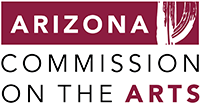By Lisa Labita Woodson
Text taken from published editorial through the American Journal of Public Health. For full text and references, visit https://doi.org/10.2105/AJPH.2023.307495
We use language to convey messages, concepts, and ideas. As researchers, we employ language in the scholarly pursuit of broadening our collective knowledge, usually in the form of scientific papers. However, this pathway of knowledge sharing is limited in its scope, outreach, and public accessibility. Consider the potential if we were to utilize language differently.
Recently, I was challenged to find ways to enhance the prominence of our research to foster greater engagement and connection to a more diverse audience. As a graduate student working in Peru’s Amazon Basin, I wrestled with how to communicate the rich and nuanced experiences of my study participants while providing a platform to elevate their voices. This experience deepened my interest and investment in learning about different forms of art-based research, specifically poetry, as both a methodological approach and an advocacy tool for social change and decolonization.
The poet Rita Dove once said, “Poetry is language at its most distilled and most powerful.” As researchers, how do we harness this power? This inquiry eventually led me to poetic inquiry, a form of research poetry that has been gaining traction over the past two decades. It is a methodology that presents scientific findings in a more accessible and emotive format and helps to articulate the rich contextual realities of participants’ lives through poetry. It encourages greater introspection as researchers examine their research processes, their relationship to participants, and power dynamics. Not only can it be used to draw attention to injustices and inequalities by articulating the lived experiences of those often marginalized and underrepresented, but it is also an effective decolonization strategy within research that “delinks conformist methodologies of knowledge production and reconfigures the relations of power that shape conventional research by invigorating the (often suppressed) voice of the colonized.” (Van Rooyen and D’Abdon, 2020).
Currently, several scientific journals publish poetry including the JAMA Poetry and Medicine and Health Promotion Practice. Poetry was also used to promote COVID-19 vaccination through the Dear Vaccine project (https://www.globalvaccinepoem.com). Recently, St Louis University jointly with Texas A&M University launched a biannual poetry journal in public health called Leaders Igniting Generational Healing and transformation or LIGHT (https://light4ph.org). This highlights the growing public and academic interest in the intersection of poetry and public health. However, to the best of my knowledge, there is no centralized global health repository of poetry that is publicly available. Through a preliminary, and by no means rigorous, search, only a handful of articles and publications appeared across search engines and databases with the keywords of “global health” and “anthology” or “poetry” or “poems” or “poetic inquiry.”
Yet, poetic inquiry does not come without thoughtful reflection on the methodological boundaries and quality of this language form. Specifically, we must consider if we are creating good poetry and, correspondingly, if the data are still trustworthy, persuasive, and credible. This remains a highly debated topic among research poets and poet researchers alike. Despite being new to this field, I see inherent value in poetry. It is exactly what is needed right now in the field of global health, and more expansively in public health research. It positions us as researchers within the research, provides a space for reflexivity, and helps humanize the experience of our participants.


©2024. Made with (❤︎) in Yachayninchik